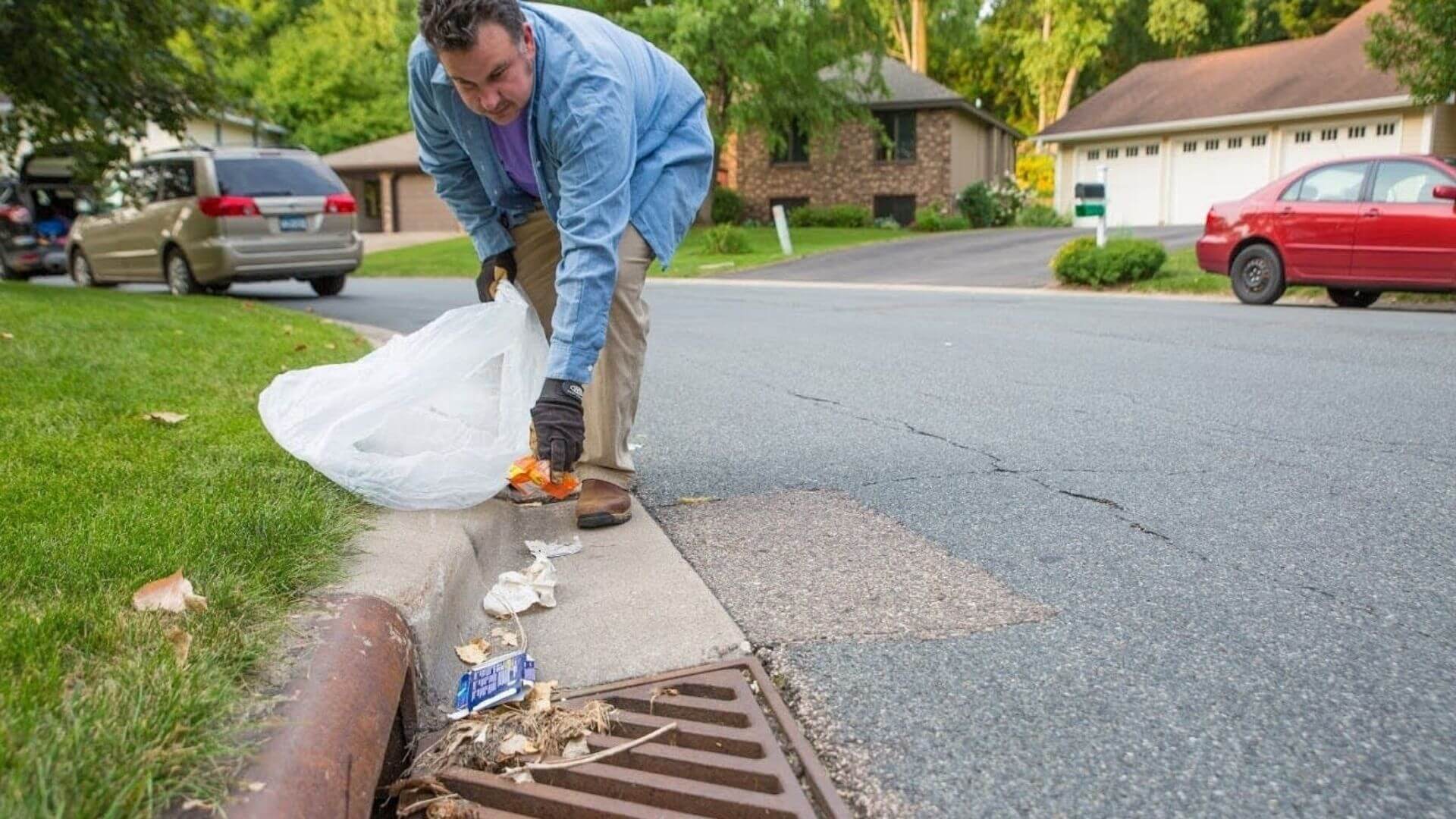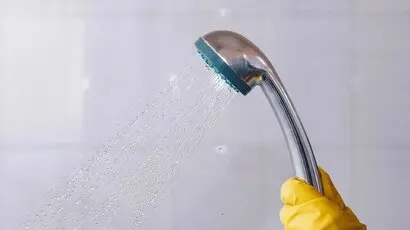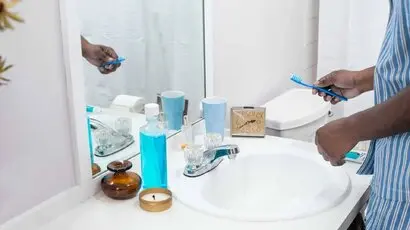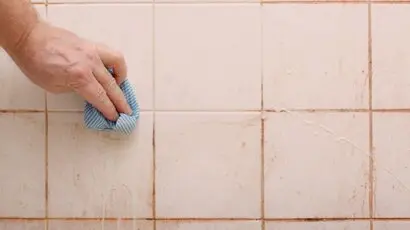How To Keep Your Stormwater Drains Clean
Are your stormwater drains troubling you? Keeping them free of debris and rubbish is vital. This guide outlines simple DIY tips for maintaining your stormwater drains.
Have you got issues with a blocked stormwater drain? Stormwater drains play a vital role in preventing heavy rainfall or storm disasters. However, they are often not maintained well.
If we can ensure that the drains are cleaned often, we can prevent large-scale flooding. This would also mean clean streets to walk in immediately after the rain subsides. However, in most cases, homeowners overlook maintaining the stormwater drains, which requires hiring professionals. Plus, stormwater drain blockages can be a nightmare for the whole street.
So, in this article, we will list ways to maintain your drain DIY, preventing the situation from getting out of hand.
But we should also mention that sometimes, professional cleaning is the only way to fix a clogged or damaged stormwater drain. We will discuss everything in this guide today, including the best way to clean stormwater drains!
Let’s dive into some practical tips on how you can effectively maintain your stormwater drains and keep them in top condition.

One of our first tips is to watch the grates of the storm drains and prevent them from getting clogged. Leaves, stones, and other debris can cover the grates, hindering the smooth flow of rain and stormwater.
So, whenever you see dirt accumulating on the grates, please remove it. By removing, we do not mean moving it from the top and letting the debris stay on the side. This is because the water flowing from the sides would again lead it on top of the grates, which you’d want to prevent.
You can also keep a strainer on top of the drain. The strainer is a filter to prevent debris from entering your stormwater pipes and sewer system. These drains usually collect all the rainwater and lead it to the water treatment plants, which would get treated for reuse.
But this does not happen in most areas, and you will find that the water is generally emptied in some nearby river or creek.
It’s crucial to understand that any foreign substances, such as plastics or harmful contaminants, can end up in stormwater drains. That’s why clearing away any foreign objects from these drains is essential to keeping them functional.
In the case of larger drains, you may be unable to open the grates as they would be big and heavy. So, try cleaning them a few times every week, and you should not face the problem of standing water.
You may keep a rake in your house, as it can help clean up the gardens, pathways, and the top of the stormwater drain. Especially if trees are on top of the drain, the growing leaves and twigs could go underneath the grates, and a rake would help you remove them.
You may also use a pitchfork to clear away all the debris, leaves, and branches. Ensure you throw them off in a public dustbin or gather them far away from the drain. Alternatively, you can use a cart to transfer the leaves to your garden fertiliser pit, where you can use them to make fertilisers.
Living near a bustling area might lead to pollutants collecting on your drains. These could include hazardous substances like paint, chemicals, and animal remains. Such materials can release toxic chemicals, posing risks if touched or inhaled without protection.
That’s why it’s essential to take adequate safety measures and wear protective clothing, gloves, and a face mask while cleaning the drains.
However, we’d strongly advise calling professional services if the storm drain is severely clogged or requires digging to clean up the debris. Please do not try this yourself, as you might be exposed to harmful chemicals.
Professional cleaners will know how to deal with biohazards and follow specific protocols to do the job. They have different tools specially made for this purpose, and you can rest assured that they will do the job correctly.
Here is a list of the few types of equipment that professional services use for cleaning your drainage system:
These machines, often called bucket trucks, feature a two-part bucket linked to hydraulic equipment. The bucket is lowered into the drain to scoop out dirt and debris. This method is both efficient and safe, eliminating the need for anyone to enter the drain. Once filled, the bucket is cleared and the process is repeated.
Vacuum trucks, as their name implies, come equipped with vacuum pumps. Used by nearly all professional stormwater cleaners, they effectively suck out debris to clear the area. These trucks are particularly handy following heavy storms.
Water jetters remove a drain blockage from your stormwater system drain lines. They remove all the debris collected near the base, removing blockages from the affected drain.
This section lists some factors you should remember to keep your drains running.

When cleaning your garden or raking leaves off the pathway, try not to throw them outside the boundary walls of the house. The same applies to grass clippings, later used as fertilisers. You should only stack leaves outside if your area has cleaning services that collect them weekly.
If leaves and debris gather outside your house, they could soon go to the stormwater drains. The water could pull these leaves along if it rains, clogging your drain.
Do not dump oil into the drains, which could easily clog them. Likewise, if you see oil on the ground beside the drain, clean it up immediately or call the cleaners. Otherwise, the oil could be carried to nearby streams and creeks. It may also lead to build-up inside the drains, which could then cause clogging.
Organising a community cleaning drive not only helps keep the area tidy but also strengthens bonds with your neighbours. Chat with local authorities and your neighbours about setting up a monthly or bi-monthly cleanup.
This would work well for the entire block; no water will collect even if it rains heavily. Plus, you can have fun doing this activity together as a community. And if everybody puts in the effort to keep the area clean, they will be mindful before throwing garbage around the place, especially near the drains.
Whenever you walk your pets, remember to clean up after them. If their wastes keep collecting, they could go to the storm drains, which often empty into streams, contaminating a larger water body.
PetSmart wastes can negatively impact wildlife and marine life, as they can contain several chemicals. If your neighbours have pets, inform them about these hazards, too, so everybody is on the same page.
If you share your garden or lawn boundary with the street, avoid spraying fertilisers or pesticides near the stormwater drains, as they might be carried to the nearby streams. As we have already mentioned, these can harm marine life and even humans if they come into contact with contaminated water. Hence, be careful while applying pesticides and ensure none reaches the drains.
Many people use salt and sand in their driveways and walking paths to avoid slippage. However, they can contribute to clogged drains, so we’d suggest cleaning up any excess salt or sand to prevent a stormwater drain blockage.
Installing gutter guards on your stormwater grates on your outdoor drainage system is another way to prevent a blocked drain and water damage. Along with various factors, organic matter and debris are significant causes of clogged stormwater drains.
One of the most common causes of blocked stormwater drains is leaves and other debris that build up over time. Regular maintenance is essential to prevent blockages and debris accumulation.
Are you noticing water pooling around your stormwater drain? It is likely starting to become blocked. Heavy rainfall can also cause stormwater drains to become overwhelmed, leading to backups and flooding. You may even notice other issues, such as flooding toilets.
If you hear a gurgling sound coming from your drain, it indicates that the water is not flowing freely. If left unchecked, a blocked stormwater drain can lead to severe flooding and damage to your property. As such, it’s important to be proactive in maintaining your drain and clearing away any debris that could cause a blockage.
That’s a wrap for today! We hope our guide has assisted you in discovering the best ways to maintain and prevent blockages in your stormwater drains.
We remind you to remove debris around the drain before heavy downpours. This will prevent water from flooding the drain, causing damage that may even become a health risk if not dealt with.
If tree roots block your stormwater drainage, the best thing you can do is call your local plumbers. They can inspect and repair your stormwater pipe, ensuring no leaks or cracks. We also recommend calling plumbers every once in a while to do a thorough checkup of the drain. It is always better to spot issues before they turn severe.
WP Plumbing is happy to help you with your stormwater drains in Melbourne. Our professional plumbers can also clean drains, prevent blockages, and provide other plumbing services. So please give us a call anytime!
We will leave you to it, but we will return soon with more informational guides. Comment below if you want to share your experience or need more advice.
See you again!
Has your shower head seen better days? Then you need to follow our guide to learn how to clean your shower head DIY at home with a few simple (an natural) ingredients.
Not sure how to deal with smelly bathroom drains? Don’t be embarrassed by an unpleasant odour in your bathroom. Follow our DIY guide to eradicate smelly drains at home.
Are you worried about how to remove mould from your shower area? Look no further as are guide details the causes, treatments and prevention of mould growth in your bathroom.


